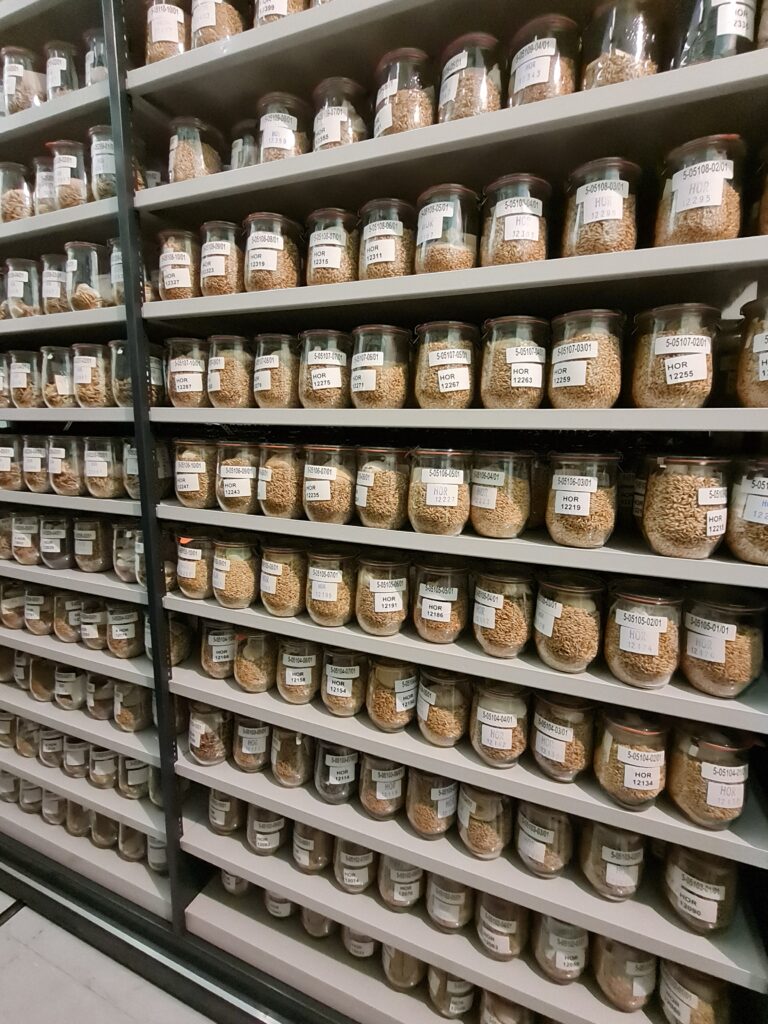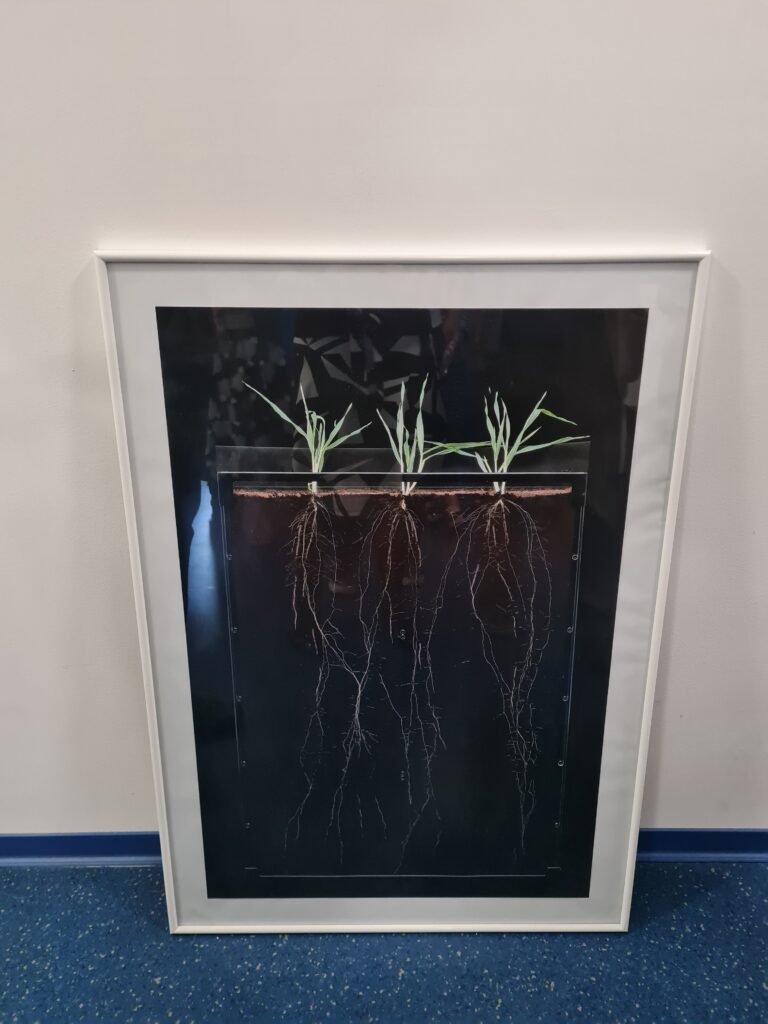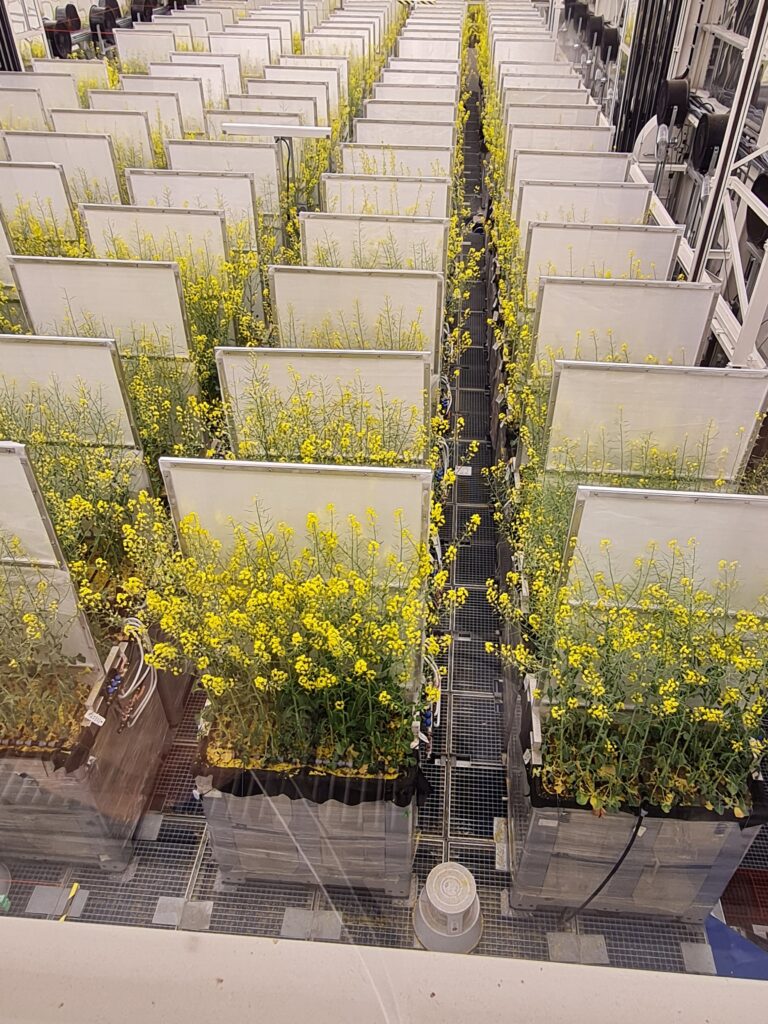Six scientists from The James Hutton Institute attended the successful and fulfilling “International Workshop on Translational Genomics in Cereals” at Liebniz Institute of Plant Genetics and Crop Plant Research (IPK), Gatersleben in Germany in April.
Blog by: Isabelle Colas, Deputy Director of the International Barley Hub
It was co-organized by Martin Mascher (IPK), Isabelle Colas (Hutton), and Ping Yang (Institute of Crop Sciences, Chinese Academy of Agricultural Sciences (CAAS-ICS), and was made possible through a BBSRC International Partnering Award between IPK and the Hutton, and a Sino-Germany Mobility Award.
The workshop’s format was novel and energizing, offering a valuable platform to foster new collaborations. Active engagements between participants allowed fellow scientists from different countries to develop an understanding of the areas and the strengths of individual teams. There was much discussion on common challenges, new and alternative methods and working collaboratively.
Introductory talks highlighted shared interests in crop improvement, novel technologies, and the development of scientific talent, promising future collaborations. A rich scientific programme followed looking at the latest cutting-edge research on wheat, oat, rye and barley. There were 28 talks across seven sessions: Evolutionary Approaches, Genomes, Development, New Breeding Technologies, Success Stories, Biotic and Abiotic Stress, and Bioinformatics.
It is always nice to hear that genetics and genomics research are an essential for crop improvement. A small change in a gene sequence can totally change a plant’s development. This was beautifully illustrated in all talks but the presentation from Kelly Houston was a prime example of a successful industry focused project.
Her Mylnefield trust sponsored student, Jessie Shadbolt, has done a marvellous job in characterizing HvHMA5, a gene involved in copper transport. It is amazing to see how such a small disruption can affect plant survival.

Maria von Korff (Heinrich Heine University Düsseldorf) spoke of barley inflorescence development under stress. Her team looked at flowering responses to day length and temperature. Landraces showed early flowering and fertility under high temperatures, while elite lines were late flowering and semi-sterile. Early flowering traits are very important in places with short growing seasons, such as central and northern Europe, to ensure yield and allow the plant to develop before extreme environmental conditions.
Patrick Koenig (IPK) introduced us to PanBarlex, the IPK’s new barley pan-genome exploration tool which includes information on protein similarities, visualisations of structural variation, integration of gene expression and variant data, and an AI-based clustering algorithm for pan-proteome data.
Several talks highlighted how the PAN genomes will revolutionise the way we look at plant domestication and plant adaptation. The idea of the “hordeum pan genome” – including wild barley relatives – was put forward by Jia-Wu Feng (IPK). With the emergence of new pest and disease due to change of climate, there is an urgent need to exploit the wild relative which often carries agronomically interesting traits for today’s agriculture.
Unfortunately, they also carry undesirable traits like grain shattering (natural shedding of seeds), which make them less attractive to breeders. Hutton future leaders’ fellow, Yunqing Yu, explained how she aims to study the genetics and cellular mechanisms of grain shattering. This research promises to provide a solution for a better exploitation of wild relatives in novel breeding programmes.
Numerous talks explored how domestication shaped the current wheat and barley cultivars and how this contributed to the loss or/and gain of specific genes to survive the local environment. It was fascinating to see how human activity and specific selection could affect cereals genome and shape them to adapt to specific environment.

However, gene sequences are not enough. You need to look at what the gene does and how these genes interact or are expressed in specific tissues or under the pressure of different environments. To this end, Micha Bayer (Hutton) updated the audience on the new development of EoRNA database, an expression atlas which consists of 177,240 unique barley expressed transcripts covering 60,444 genes.
But how can biologists analyse their transcriptome data if they have little bioinformatic knowledge? Runxuan Zhang (Hutton) has a solution and introduced us to 3D RNASeq, a user-friendly transcriptomics analysis tool. He reflected on the potential of AI for handling complex omics data and noted that crop science still lacks the extensive biological datasets needed to train similarly powerful AI tools. This promises exciting new collaborative projects between biologists and computational biologists.
Finally, we had the opportunity to learn about valuable resources such as TILLING (Targeting Induced Local Lesions in Genomes) populations. One of the main advantages of the TILLING population is that it can be applied to a wide range of barley cultivars and is relatively inexpensive. At the Hutton, we have developed and exploited a couple of TILLING population in Optic, Golden promise that can be further exploited.
During the meeting, we also discussed new breeding technologies. Stefan Heckmann (IPK) has developed a barley virus-induced gene silencing (VIGS), to transiently silenced meiotic genes. Robert Hoffie (IPK) described targeted mutagenesis for virus resistance in barley. Bo Zhu (Sichuan Normal University) introduced a novel enhancer-based strategy to fine-tune gene expression and enhance stress resistance. This approach has proven successful in cold-induced sweetening and heat stress in potato and tomato and may also help reduce lodging in highland barley.
Gene editing was, of course, on the menu. Lan-Qin Xia (CAAS-ICS) presented successful gene editing in wheat and rice which should be soon released to the market.
Networking opportunities abounded, including excellent guided tours of IPK’s world-class facilities: a gene bank with over 150,000 accessions stored at –20°C for long-term viability. Here we learned that the potato germplasm is uniquely preserved as tissue cultures in a cold room. The dedication to preserving plant genetic resources ensures ongoing support for global breeding efforts.
We also visited IPK Phenosphere, the state-of-the-art phenotyping centre that hosts the rhizotron and a unique container system that mimics field conditions, but under very strict growth conditions (light, temperature, humidity, CO2 concentration). The rhizotron system can be used to analyse roots and shoot growth in parallel. During our visit, they were preparing the containers for a flooding experiment.



We were also treated to a guided tour of Quedlinburg, a UNESCO World Heritage site and the first capital of Germany. Known for its beautifully preserved timber-framed houses, Quedlinburg is also famous for its unique history—ruled for nearly 800 years by abbesses from a convent for aristocratic women founded by the king’s widow.










